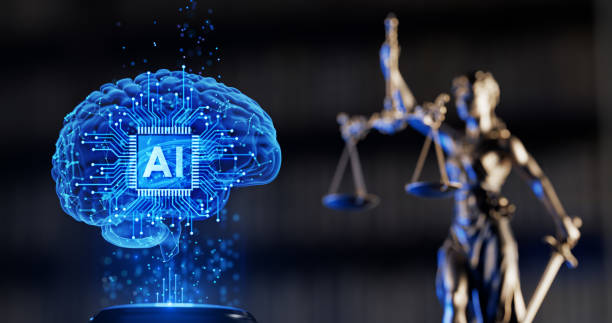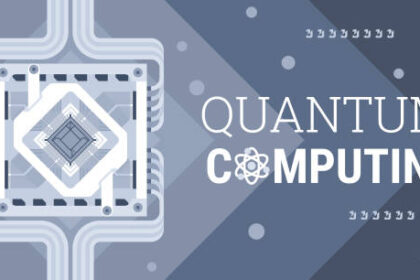The Ethics of Emerging Tech
Imagine this: A humanoid robot comforts a child where a parent usually would. An A.I. determines whether a person gets a loan — or a life-saving treatment. 7 A tech company knows your deepest fears before you do
It sounds like a science-fiction cliche, but it’s already here.

Welcome to the age of emerging technologies, when artificial intelligence, biotechnology and surveillance tools are advancing a great deal faster than we can inquire “Should we?” Rather than only marveling at the convenience and the power of innovation, we’re now met with a chillingly important question: Where exactly do we set the ethical bar?
So let’s plunge into the messy ethics of tech — and discover why our next steps are more important than ever.
What Are Actually Emerging Technologies?
Emerging tech refers to new and potentially disruptive and life-altering innovations. Think AI, brain locks and neural implants, CRISPR gene-editing, immersive virtual reality and virtual identities, autonomous computer-based weapons and more.
Their novelty is not what sets them apart from the rest, but their potential to change the very nature of society.
Whether it’s medical breakthroughs, military strategies or any part of daily life, emerging tech is woven into every aspect of our lives. But, wait, not so fast: with great power comes deeply complex ethical quandaries.
Ethics vs. Innovation: On a Collision Course
Just because we have the ability, does it follow that we should?
That’s the central dilemma. Innovation tends to outpace regulation, with ethics trying to keep up. The Facebook-Cambridge Analytica scandal demonstrated how data could be weaponized, influencing elections. CRISPR shocked the world when a Chinese scientist engineered the genes of twin girls — in global isolation and without oversight.
Ten years after the publication of Homo Deus, Yuval Noah Harari, historian and author, warns:
“Once tech gives us the ability to engineer life, intelligence and society, ethics becomes the primary mover — science does not.
Case Study: AI and Bias/Social Justice

Let’s discuss a type of cyber threat hiding in plain sight: algorithmic bias.
In 2019, Apple’s credit card algorithm was said to give lower credit limits to women compared with men, even when their financial profiles were the same. The problem? It trained on past and biased data.
This isn’t just a glitch. That systemic flaw can spread discrimination at scale. When A.I. decides who gets a job, a loan or a sentence in a courtroom, flawed data can have real-world consequences.
Ethics is not optional. It’s essential.
The Moral Minefield of Surveillance Tech
Another ethical conundrum is surveillance technology. While facial recognition can assist in catching criminals, it can also allow oppressive regimes to track citizens, quash dissent and stifle opposition.
A real-world example is China’s social credit system. Every human is given a score based on actions — what they purchase, what the people they know purchase, and in some cases, what they say on the Internet. Step out of line? You might get banned from flying or from sending your child to a top school.”
It’s not sci-fi. It’s reality.
So here’s the question: Are we swapping freedom for convenience — and not registering the price until we no longer can?
Biotech: The Ability to be God
Gene editing is among the most thrilling — and fearsome — frontiers. Technologies such as CRISPR enable scientists to edit DNA with exactitude — potentially eliminating diseases or creating “perfect” babies.
Now here’s the ethical quandary: Who decides what’s ‘perfect’?
Have you ever wondered, Should we cure genetic disorders? Most would say yes. But do we enhance intelligence or physical attributes? That’s a treacherous path to eugenics.
Even CRISPR’s co-inventor, Nobel Prize-winning biologist Jennifer Doudna, admits she is profoundly troubled by what lies ahead.
“We need a continuing global conversation, not just among scientists, but the public at large.”
Who Will the Big Tech Players Fifth Their New Move?
Innovation these days is driven by companies like Google, Amazon and Meta. Yet along with that power, however, is a lingering spectre of exploitation — from managing attention spans to monetizing personal data.
The business model? Surveillance capitalism — monetizing your clicks, feelings and behaviors on a real-time basis.
As whistleblower Tristan Harris states in The Social Dilemma:
“If you’re not the paying customer, you’re the product.”
So who is taking these giants to task? Do they need to self-regulate or do we need tougher laws?
Where Do We Draw the Line?
The truth? There’s no one line — because every culture, every government, every person has different ideals for ethics.
But one thing’s certain: the conversation needs to take place now. No longer can we wait until after the damage is done.
Ethics needs to be baked into innovation—not sprinkled on like an afterthought. That means including ethicists, sociologists, psychologists, and ordinary citizens in designing and rolling out new tech.
What Can You Do Right Now?
Feeling overwhelmed? Don’t. You Have More Power Than You Realize
✅ Learn about the technologies that are shaping your world.
✅ Ask about convenience — what are you giving up for that “free” app or device?
✅ Vote with your dollars for ethical behaviors from corporations, policies, and other institutions.
✅ Don’t be afraid to break the silence when something doesn’t seem right.
Set a date for your transformation, because every innovation begins with a decision. And your voice is a critical element of that choice.
The Bottom Line: You Are Needed in the Future
Emerging tech is not evil, by definition; it’s a tool. But like any tool, it can create or it can wreck, depending on who’s holding it — and how.
If we want a future in which technology empowers rather than enslaves, we can’t sit back and wait for it to work out. We must actively shape it.
- So the question is: What future are you willing to live in?
- And, more importantly — what are you going to do about it today?
- Let the conversation begin. 💡








